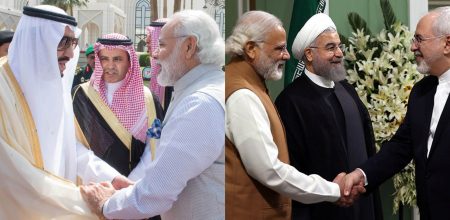Tamannaah Bhatia’s Explosive Truth: Stardom Is a Transaction, Not a Fairytale
When Tamannaah Bhatia opened her mouth recently and declared—“It’s not about being a good person, it’s about what you can offer”—she wasn’t whispering; she was detonating a truth bomb that the glittering film industry pretends doesn’t exist. Fans gasped, critics nodded knowingly, and social media went into overdrive. But what does she actually mean? And why would someone with nearly two decades of stardom decide to rip the mask off now?
Let’s break it down:
She’s saying that in showbiz, your character doesn’t pay your bills—your utility does. Directors don’t ask, “Are you kind?” They ask, “Can you deliver box office numbers, trending reels, or scandalous buzz?” The film industry is less about goodness and more about relevance, leverage, and survival.
Tamannaah: From Mumbai Girl to South Indian Superstar
- Born in 1989 in Mumbai, Tamannaah wasn’t from a film dynasty. She entered Bollywood as a teenager with Chand Sa Roshan Chehra (2005), a film no one remembers. What people do remember is how she packed her bags, went south, and rewrote her destiny.
- By 2007, films like Happy Days (Telugu) and Kalloori (Tamil) made her a household name.
- She became the rare actress who could dance, emote, and hold her ground opposite both Tamil and Telugu superstars.
- Her longevity? She understood the ruthless rulebook: constantly reinvent, pick commercial entertainers, occasionally sprinkle in artsy roles.
And then came Baahubali. Overnight, she wasn’t just Tamannaah—she was the woman every household in India recognized.
Reinventing on OTT: From Glam Doll to Bold Choices
When the OTT wave hit, Tamannaah pivoted again. She jumped into web series like Aakhri Sach and Jee Karda. Suddenly, audiences who thought they knew her were shocked. She wasn’t shy of bold roles, intimate scenes, or dark themes. Critics called it “obscene”; she called it evolution.
But why? Simple. Bollywood sidelines heroines after 30. OTT gave her a second life, a chance to break stereotypes and stay relevant.
Love, Breakups, and Rumoured Affairs
Here’s the part fans love more than filmography—the messy human side. Tamannaah has been linked to several men over the years:
- Virat Kohli: Years ago, rumors flew after they appeared together in an ad. She denied it, but gossip mills don’t forget.
-
Vijay Varma (OTT co-star): During an OTT shoot, whispers of a growing closeness spread. They spent time together off set too, before reports of a quiet split surfaced.
- Other Breakups: Tamannaah has been connected to actors, cricketers, and businessmen. None of the relationships reached “forever.”
Most recently, she hinted she wanted to “settle down soon” with someone who sees her as karma’s blessing. Noble words? Maybe. But to critics, it sounded like arrogance wrapped in self-pity. After all, if love after love didn’t stick, perhaps the problem isn’t the world—it’s the mirror.
Why Her Words Sound Immature (Despite Her Age)
At 34+, Tamannaah should ideally have mastered the art of measured wisdom. Instead, her comment reeks of fatigue mixed with disillusionment. After so many affairs, breakups, reinventions, and comebacks, she’s clearly bruised. Saying “it’s not about being a good person” is less industry analysis and more personal wound bleeding out.
But here’s the kicker: she’s right. Stardom is a transactional marketplace. You’re worth what you bring to the table—be it box office, followers, or gossip.
The Harsh Reality for Every Actor
Tamannaah just said out loud what most actors whisper at parties:
- Films don’t reward morality. They reward market value.
- Boldness isn’t about art—it’s about survival.
- Relationships in showbiz aren’t forever; they’re chapters in PR scripts.
And while fans debate her maturity, one fact stands tall: she has endured in an industry that eats women alive after their 20s. That itself is proof of her offering—whether people like it or not.
Final Thought
Tamannaah Bhatia’s statement may sting, but maybe it should. We live in a culture that worships celebrities yet forgets the heavy price they pay to stay worshipped. Her truth might sound bitter, arrogant, or even immature—but it’s carved from years of scars.
The question isn’t whether she’s right. The question is—why does it take decades for actors to admit the obvious?



